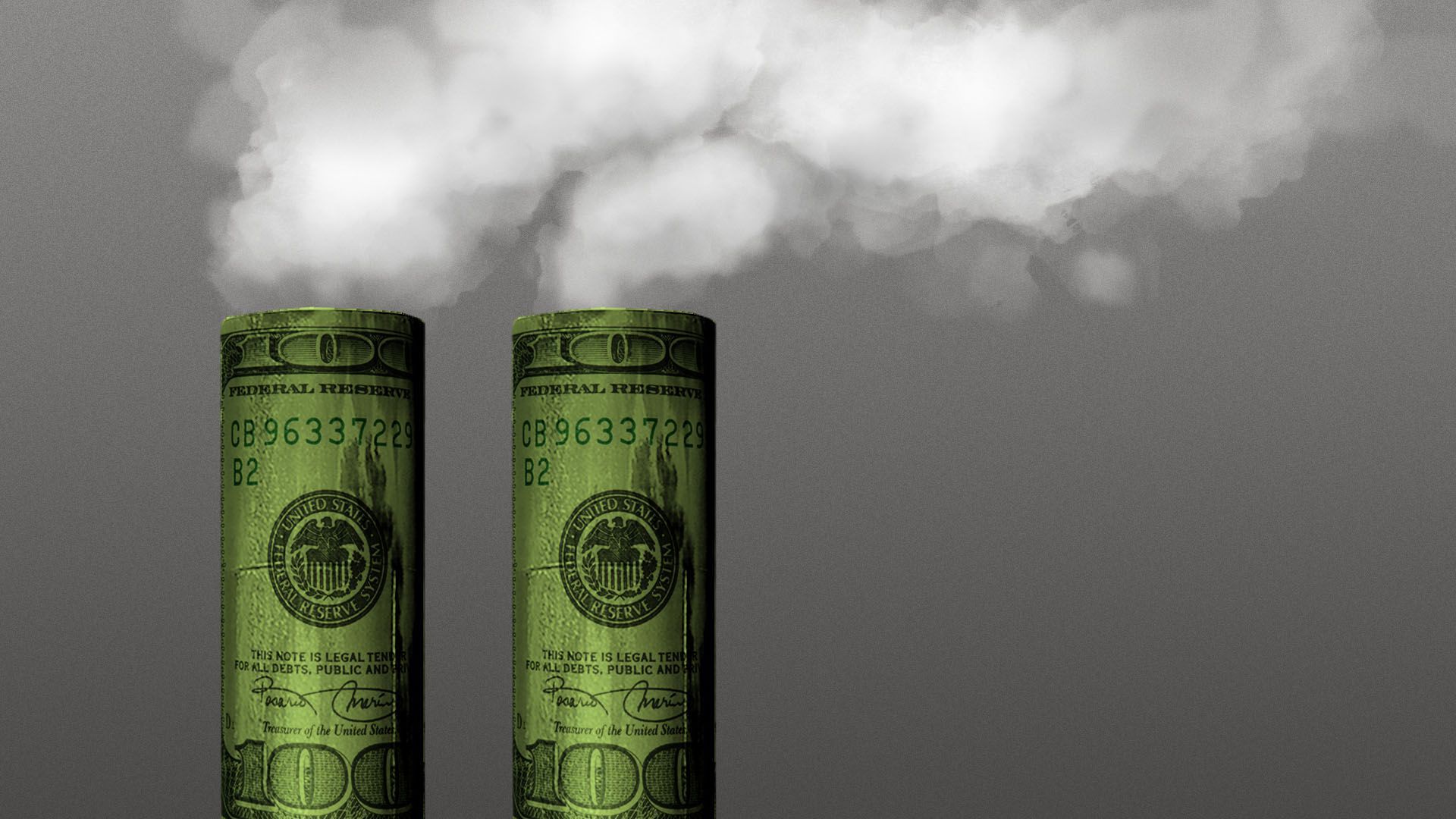From AXIOS –

Illustration: Sarah Grillo/Axios
G20 governments’ pandemic recovery packages are steering much more funding to fossil fuel industries and energy-intensive sectors like airlines than “clean” energy, a new analysis shows.
Why it matters: International agencies like the UN and IMF have been urging governments to prioritize climate-friendly energy in economic recovery packages.
But the new Energy Policy Tracker project from several think tanks and activist groups shows that for now, incumbent fuels and industries are getting more aid.
By the numbers: According to the new database, thus far G20 governments’ commitments provide…
- $151 billion for policies “supporting production or consumption of fossil fuels.”
- Of that amount, only $30 billion comes with climate targets or new emissions requirements.
- Meanwhile, $89 billion has been steered toward “clean” sectors like energy efficiency, solar and wind.
- There’s another $28 billion in the “other energy” category that doesn’t fall into their “fossil” or “clean” taxonomy, such as ” biofuels and hydrogen of unspecified origin.”
Yes, but: Quartz points out an important caveat.
“This analysis only counts funding that has been officially committed. Stimulus funds that are still in discussion, like the European Union’s $850 billion green recovery plan, are not included,” the piece notes.
The groups plan to update the tracking tool on a weekly basis as more recovery spending is approved.
The big picture: “National and subnational jurisdictions that heavily subsidized the production and consumption of fossil fuels in previous years have once again thrown lifelines to oil, gas, coal, and fossil fuel-powered electricity,” said Ivetta Gerasimchuk of the International Institute for Sustainable Development.
Her group launched the project with organizations including the Institute for Global Environmental Strategies, the activist group Oil Change International, the Overseas Development Institute and others.